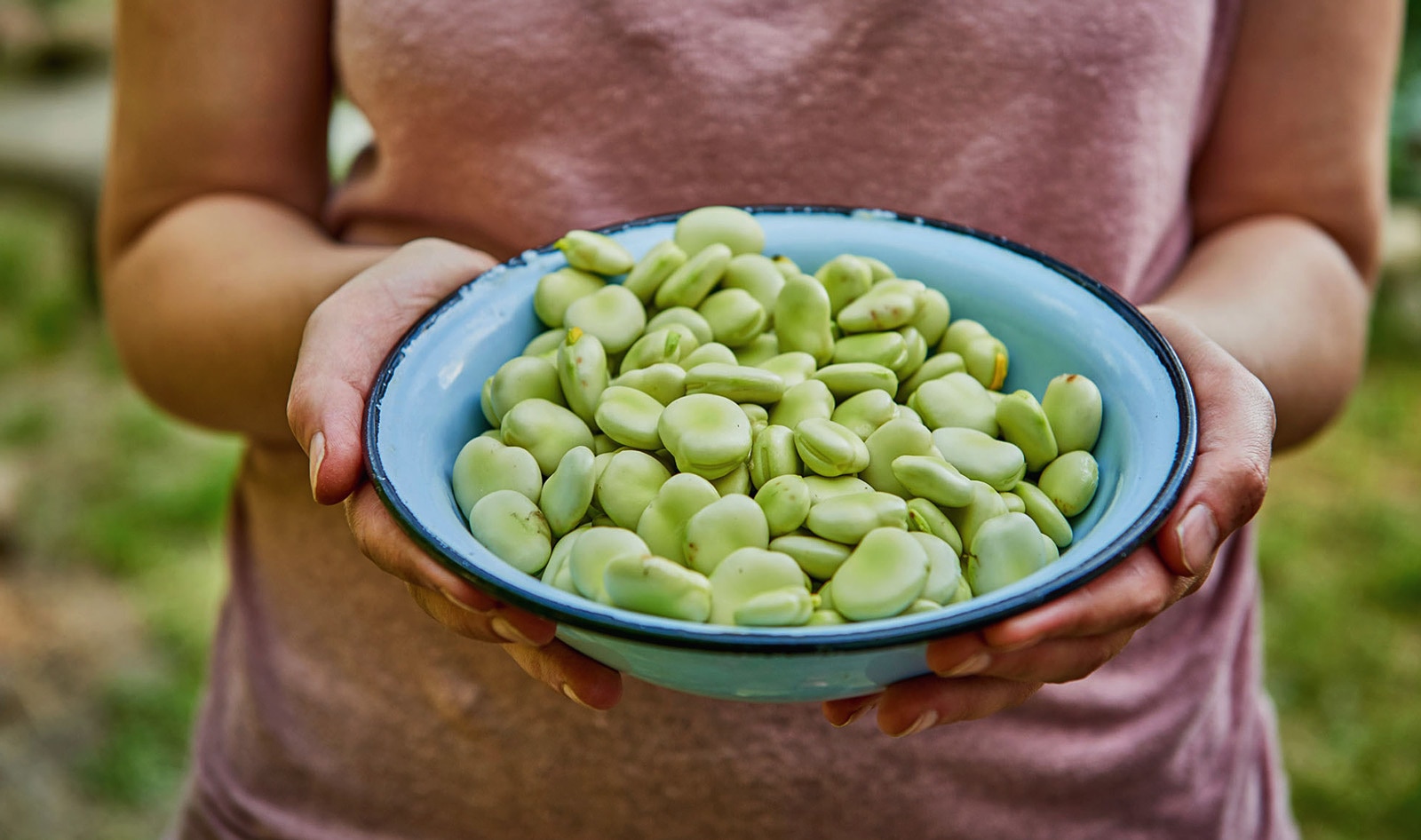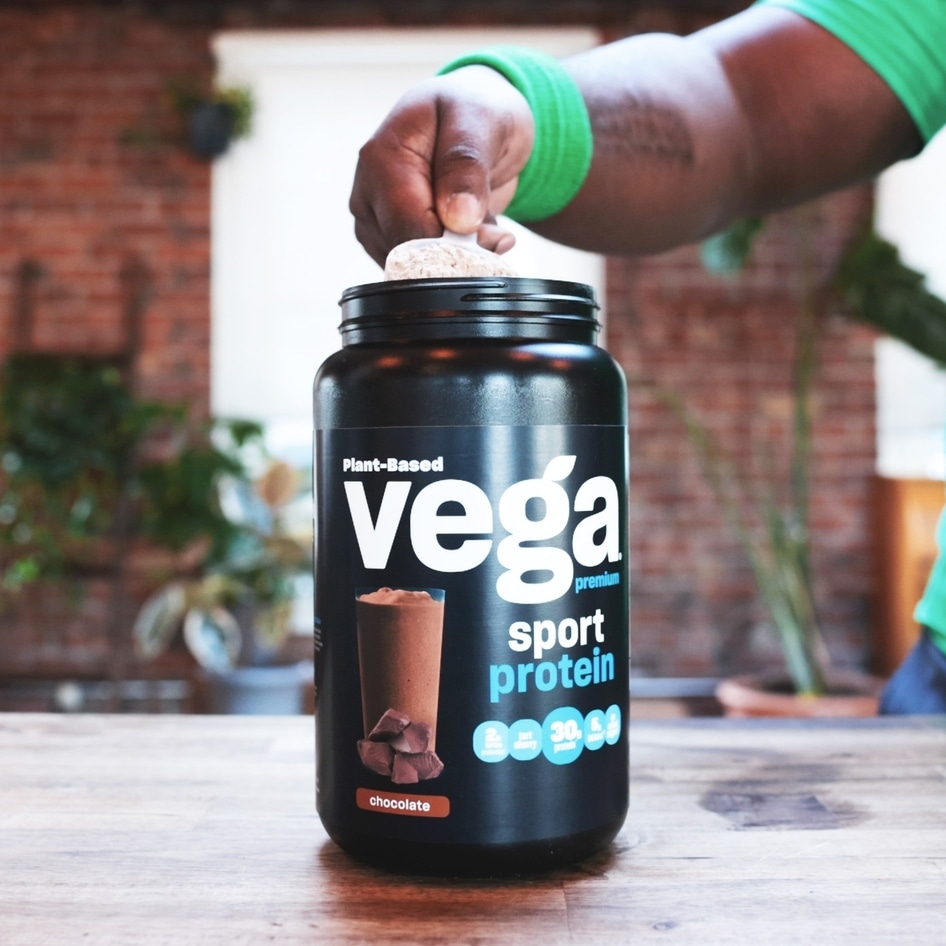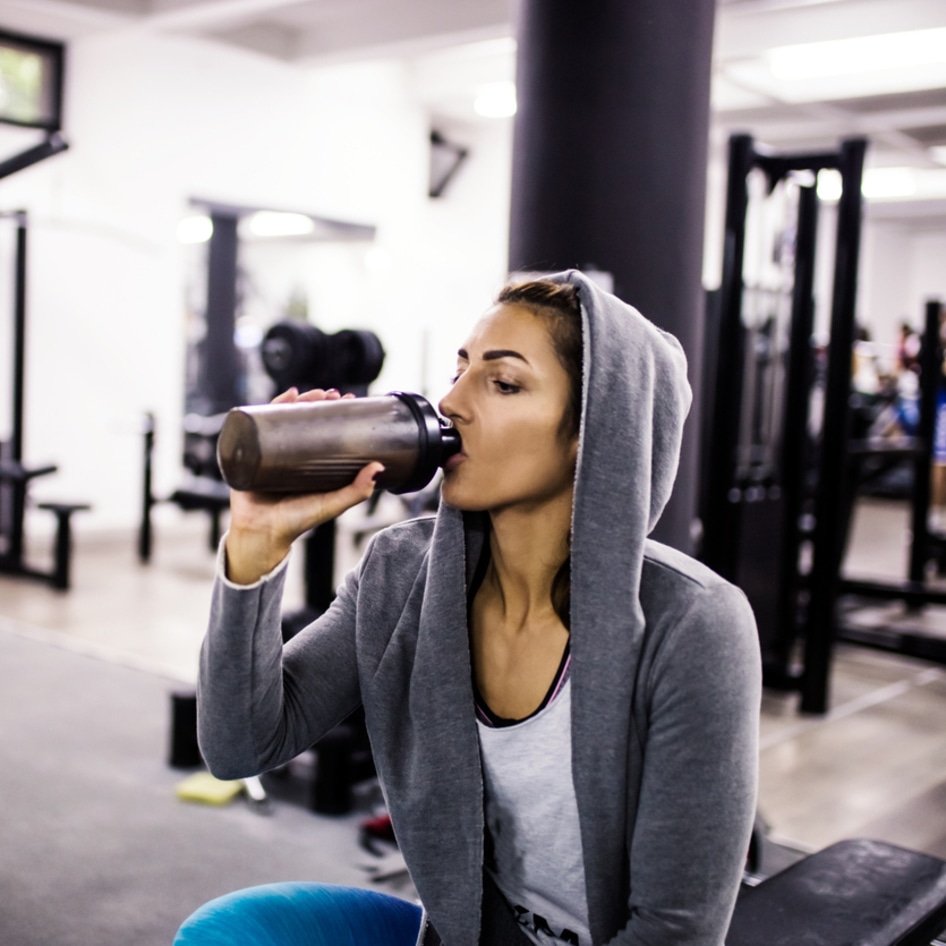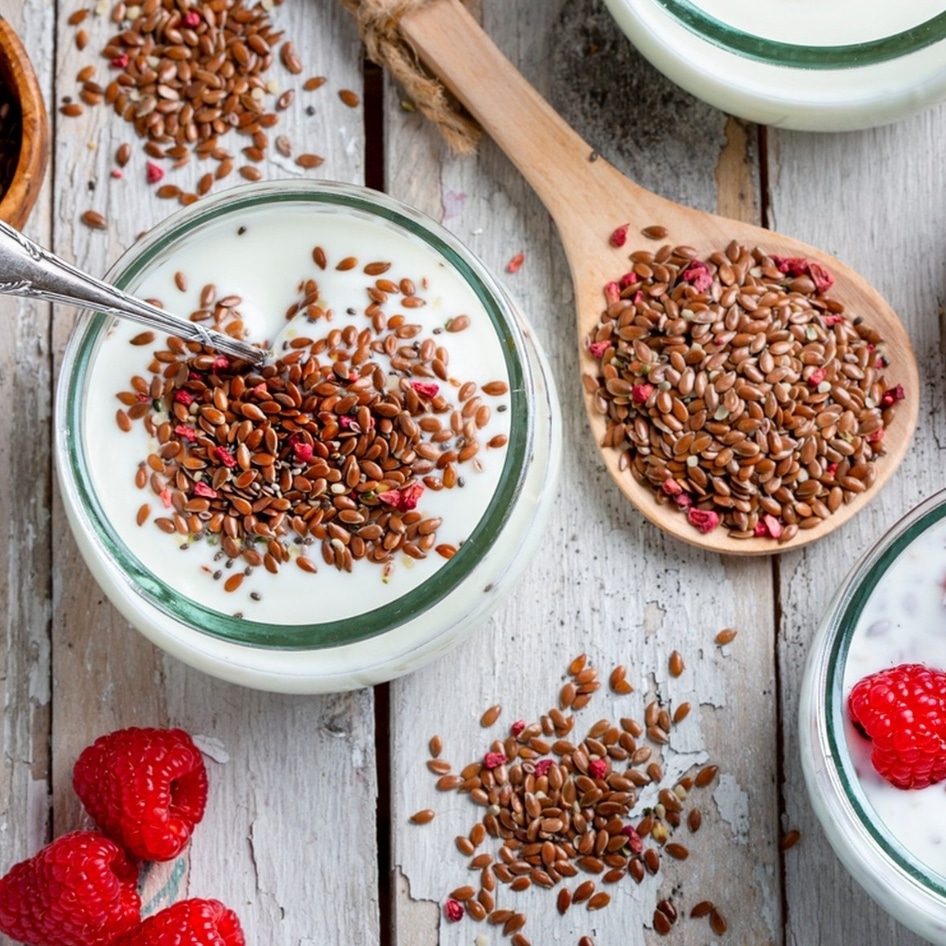Fava bean peptides perform better than traditional animal-derived proteins, specifically milk protein, in muscle conditioning, according to a new study recently published in the scientific publication The Journal of Nutrition. For the clinical trial, Irish biotechnology company Nuritas and Maastricht University aimed to explore the effectiveness of the company’s plant-based bioactive peptide solution, PeptiStrong.
Peptides are short-chain amino acids that play a critical role in signaling biological processes in the body, including muscle growth and maintenance. While previous studies focused on the potential of animal-derived peptides from sources such as creatine, whey, and collagen, this study aimed to compare the effectiveness of plant-based peptides from fava beans to milk protein supplementation on muscle mass and strength loss during exercise and recovery.
 Bruno Nasciment/Unsplash
Bruno Nasciment/Unsplash
For the randomized, double-blind clinical trial, 30 men between the ages of 24 and 29 were subjected to one week of one-legged knee immobilization followed by two weeks of ambulant recovery. Participants were randomly chosen to consume either 20 grams of the Vicia faba peptide network (PeptiStrong) or a milk protein concentrate twice daily throughout the study.
Participants were instructed to refrain from strenuous physical activity, avoid alcohol intake, and keep their diet as constant as possible for two days before the first experimental test day until the final test visit three weeks later.
Leg muscle size, leg muscle strength, and daily muscle protein synthesis rates in both groups were assessed prior to and after immobilization and then following the two weeks of recovery.
The participants completed dietary intake and physical activity records for three days before the immobilization period and during the final three days of the immobilization and recovery periods.
Dietary intake records were analyzed using the Dutch Food Consumption Database 2019.
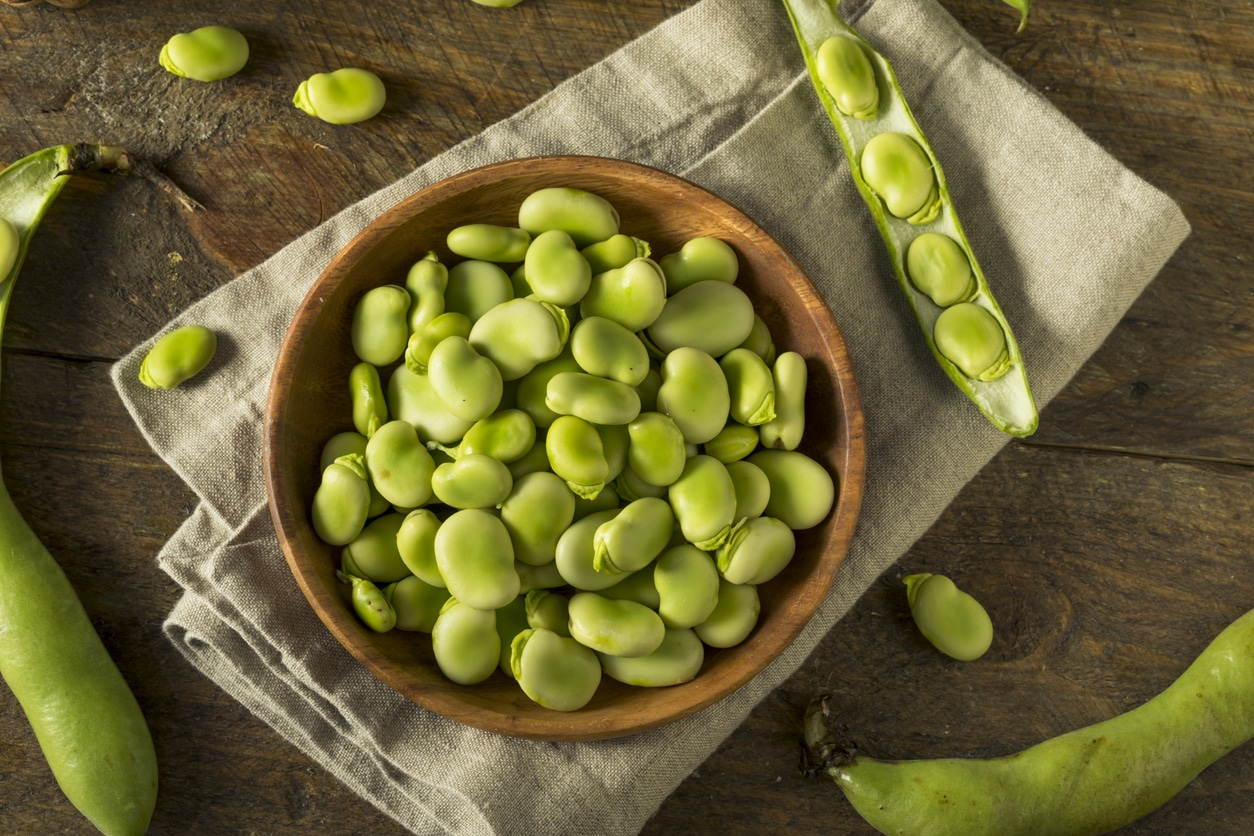 Getty
Getty
The study found that one week of single-leg immobilization resulted in a substantial decline in daily muscle protein synthesis rates and a loss of muscle size and strength, which only partially recovered after two weeks of remobilization.
No differences were observed between the Vicia faba peptide network or milk protein supplementation for the loss of muscle size and strength during short-term immobilization or the regaining of muscle size and strength during subsequent remobilization.
However, supplementation resulted in significantly higher muscle protein synthesis rates during the remobilization period when compared with milk protein supplementation.
Plant peptide benefits for muscle health
Muscle health has been identified as the next frontier of research and intervention in the loss of strength, muscle mass and soreness brought on by activity and strenuous training. And the study indicates that the bioactive peptides will provide a range of benefits to people, including increased muscle performance, recovery, and decreased muscular fatigue.
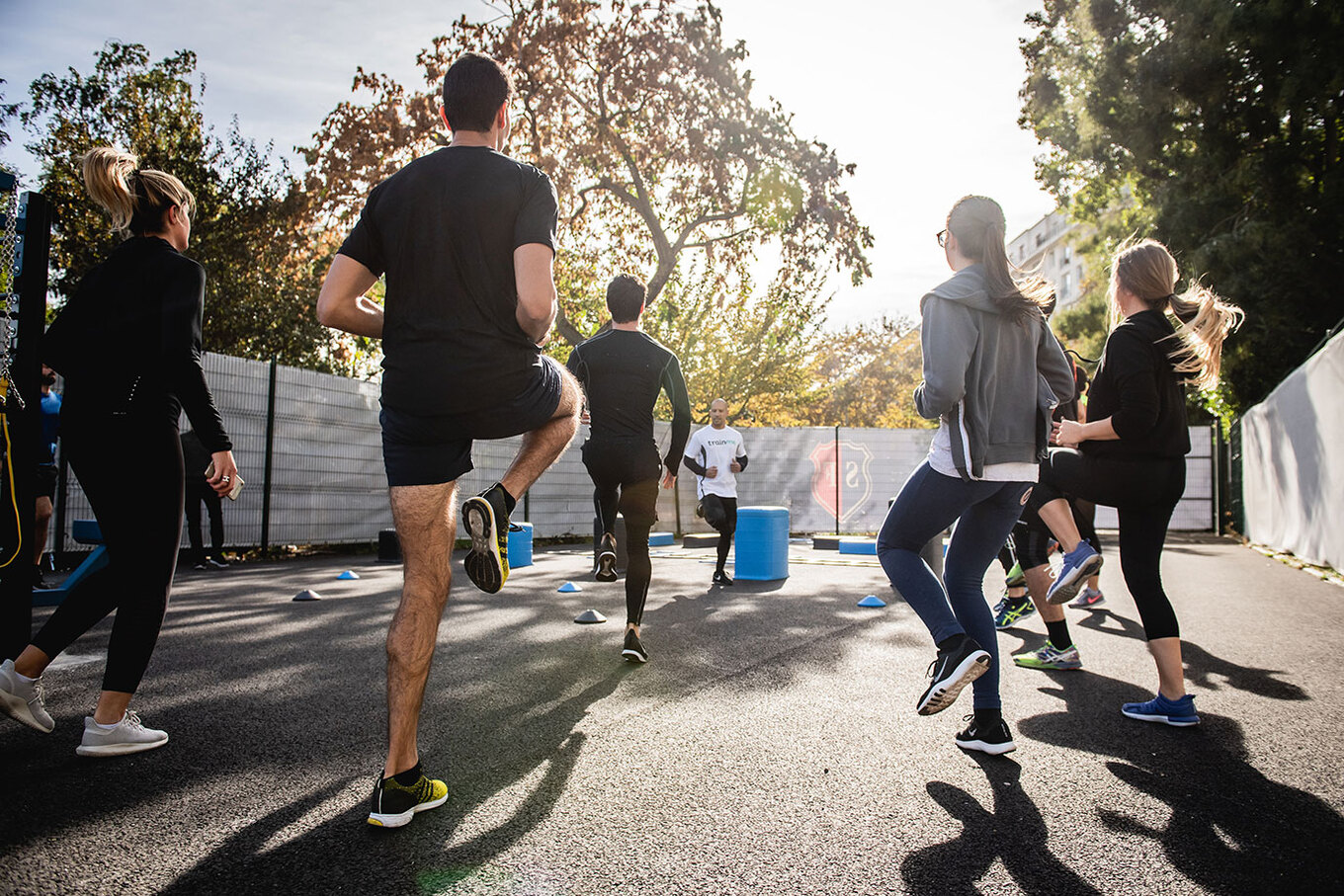 GabinVallet/Unsplash
GabinVallet/Unsplash
“In a quest to live better for longer, it’s becoming increasingly clear that plant-based solutions are making huge strides, some even starting to outperform animal proteins on their own battlefield: muscle health,” Nuritas said in a statement.
Nuritas believes its new PeptiStrong ingredient will benefit adults looking to preserve their vitality by maintaining and restoring muscle health. From our mid to late 20s, especially with modern sedentary lifestyles, we start to lose muscle, which can eventually affect our physical activity levels and loss of independence as we age.
“Muscle health is the next frontier of aging, manifesting in the form of loss of strength, loss of muscle mass, and soreness after daily activities or challenging training sessions, at every age,” Nuritas said.
The study also helped identify peptides that may improve both restoring muscle function after exercise as well as those who struggle to regain muscle strength, particularly females in the perimenopausal stage, providing massive potential in both rehabilitation and sports performance.
Vegan protein for muscle building
In recent years, other studies have shown that plant-based protein supplementation is just as effective as traditional animal-based proteins when it comes to muscle building. Last year, a study published in the scientific journal Sports Medicine found that vegans experience the same muscle gains using plant-based protein powder as omnivores using whey.
The study’s results challenge the notion that an exclusively plant-based diet is less efficient than a diet that includes animal products in supporting muscle-building. Traditionally, whey protein has been considered the optimal choice of protein for muscle-building; however, in recent years researchers have determined that animal-derived protein is not superior to plant-based protein.

“A high-protein, exclusively plant-based diet (plant-based whole foods plus soy protein isolate supplementation) is not different than a protein-matched mixed diet (mixed whole foods plus whey protein supplementation) in supporting muscle strength and mass accrual, suggesting that protein source does not affect resistance training-induced adaptations in untrained young men consuming adequate amounts of protein,” the researchers concluded.
For the latest vegan news, read:
JUMP TO ... Latest News | Recipes | Guides | Health | Subscribe

